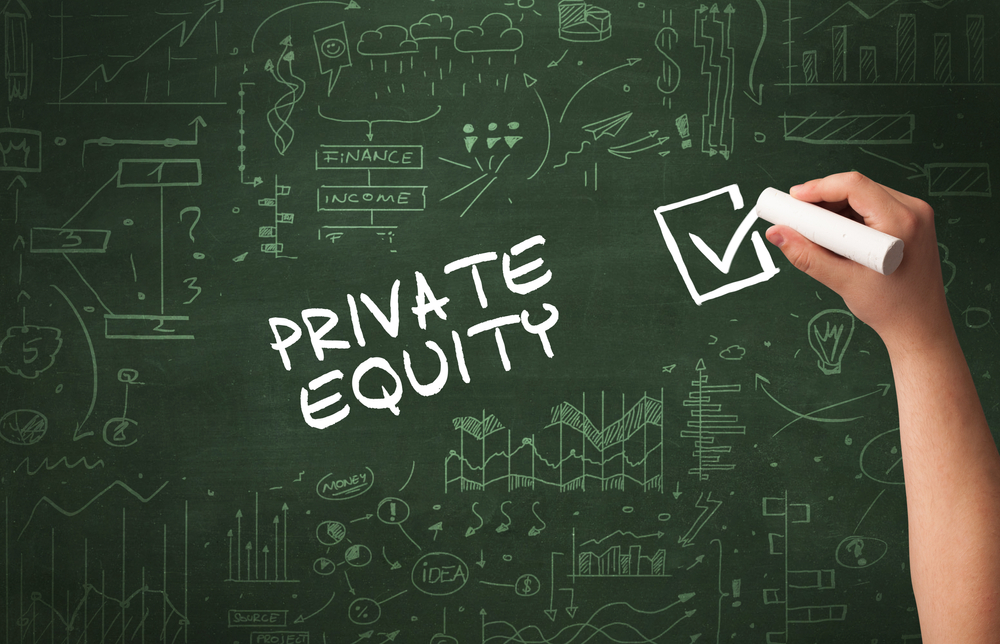The private equity industry has rediscovered its mojo. The latest updates from the publicly traded firms specialising in the asset class satisfied investors’ appetite for bullish vibes from the leadership teams. As shares in alternative investment managers build on an already strong recovery, the risks of disappointment can only mount.
The stunning change in sentiment around private capital managers is driven by confidence that interest rates have peaked, bringing some predictability to the cost of capital. Spreads – the extra cost to reflect the risk of the borrower – have fallen. Buyout firms should find it easier to refinance existing investments and initiate new transactions that see idle client funds — “dry powder” — start earning fees.
At the same time, the stock market is running hot. A new record for the S&P 500 may set the stage for a resurgence in corporate M&A and new stock sales. Buyout firms could then exit maturing investments and take a cut of any gains. Rising stocks also rebalance institutional investors’ portfolios between public and private markets, reducing the weighting to illiquid assets. That releases a brake on allocating fresh funds to buyout firms.
Then there’s the growing appreciation of the listed players’ diversification away from conventional private equity, typically into credit and so-called secondaries, which buy stakes in other funds’ deals or the fund itself. These have provided a source of fee income that runs on a different cycle to traditional US and European private equity activity. The firms are no longer buyout shops; they have become “platforms.”
Hence, the listed buyout sector strongly outperformed the stock market in the second half of 2023. Investors decided that valuations had fallen too far, and became willing to price these stocks at higher multiples of anticipated profit. The de-rating that accelerated when the market began fretting about rate rises in 2022 is being unwound. For CVC Capital Partners, the European private capital firm, the conditions for re-launching the initial public offering it pulled last year look pretty favourable.
The share price gains have continued even though analysts at Morgan Stanley cautioned last month that shares were already priced “not just for recovery, but arguably perfection” in valuations toward the high end of their historical range, coming in at 15 times 2025 earnings. But investors are being told what they needed to hear: Momentum in fundraisings is, with a few exceptions, strong and there’s optimism about opportunities to put money to work.
KKR & Co and Apollo Global Management Inc hit records highs on earnings last week. Carlyle Group Inc, the sector laggard, was up 10 percent at one point after reconfiguring its pay policies to give shareholders a bigger slice of predictable management fees and make staff remuneration more dependent on unpredictable investment performance.
Lonely is the broker-analyst with a sell rating on these stocks. The biggest pocket of skepticism is the handful of analysts who are neutral on Blackstone Inc. – not such a tough call when Stephen Schwarzman’s shop trades at a richer valuation than its major peers.
Will this year and next really be as good as people are thinking? Election-related uncertainty may constrain the corporate sector’s readiness to contemplate transactions, whether buying from or selling to private equity. Market exuberance could evaporate rapidly if economic data suggest monetary policy will stay tighter for longer than expected, or if geopolitical instability worsens.
Longer term, there are also reasons to be wary.
The investment proposition for these stocks rests on a key metric – fee-related earnings, which are based mainly on the base charges on client funds once investments are made. These management fees are sticky since money is locked up for several years. The common wisdom is that this dependable revenue stream will grow rapidly as more and more money pours into private markets.
Apollo boss Marc Rowan last week stressed his conviction in the broader appetite for private assets relative to publicly traded stocks and bonds – especially for long-term investors who don’t need daily liquidity: The traditional perception that public markets were safe and private markets risky was giving way to a recognition that there are safe and risky investments in both categories.
The question remains whether the alternatives industry can generate returns for investors in a normalized rate environment that justify the higher fees it charges. Remember that private capital investors are price sensitive — they often try to lower their overall charges by investing directly in buyouts outside of funds, to save on fees.
How long will it take for asset prices and borrowing costs to align to create buyout opportunities offering the traditional mid-teens returns? The sense is that we’re not quite there yet. The idea that there’s a large number of aspiring vendors ready to cut their supposedly unrealistic asking prices for attractive assets could prove wishful thinking.
Sure, the desire for diversification will continue to drive allocations even if alternative investments perform less well than in the low-rate era. All the same, a sustained period of disappointing performance would surely pose a threat to fundraising momentum.
The outlook for the buyout industry is clearly much better than it was a year ago. But beware, some high expectations are already comfortably embedded in the listed sector’s shares.








